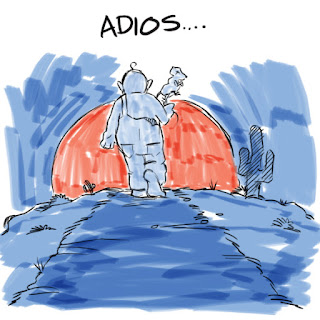Went to the mall in Tegucigalpa today. And wouldn't you know, it looked just like every mall in every place I've ever been to, right down to the Dunkin' Donuts kiosk just inside the entrance and all the pretty young girls in tight pants and high-heeled shoes browsing the stores. We had crepes for lunch.
Went to the bank, too, and that was a whole other story. I had to open a Honduran account to be able to access the stipend that Cuso International pays its volunteers, a long and complicated process for which I was very, very glad to have a Spanish-speaking Cuso staffer sitting beside me. The bank asks way more personal questions than any Canadian bank could get away with - like the names of your children, your marital status and your personal health.
Next stop, the local cellphone store for a $30 cellphone and 165 lempiras' worth of free calls. The good news: There's no long-distance charges for calling anywhere within Honduras. The bad news: I don't know anyone here to call and the bonus is only good for a week.
Head hurts from another day of straining to understand what people are saying. Somebody should invent a new-language-acquisition pill.
Went to the bank, too, and that was a whole other story. I had to open a Honduran account to be able to access the stipend that Cuso International pays its volunteers, a long and complicated process for which I was very, very glad to have a Spanish-speaking Cuso staffer sitting beside me. The bank asks way more personal questions than any Canadian bank could get away with - like the names of your children, your marital status and your personal health.
Next stop, the local cellphone store for a $30 cellphone and 165 lempiras' worth of free calls. The good news: There's no long-distance charges for calling anywhere within Honduras. The bad news: I don't know anyone here to call and the bonus is only good for a week.
Head hurts from another day of straining to understand what people are saying. Somebody should invent a new-language-acquisition pill.

















